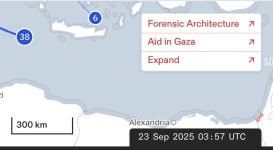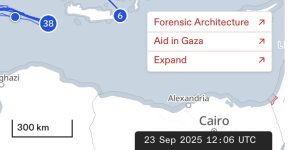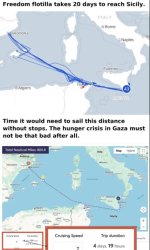Likud's Mandate and the Ideology of Greater Israel
The query appears to inquire about the Likud party's political mandate (i.e., its electoral authority and platform) in relation to "Greater Israel"—a Zionist concept envisioning Israeli sovereignty over the entire historic Land of Israel, including the West Bank (biblical Judea and Samaria), Gaza Strip, and sometimes beyond (e.g., parts of Jordan or the Golan Heights).
This ideology is central to Likud's founding principles and has shaped its policies, though it has evolved pragmatically over time. Below, I'll outline the historical roots, platform commitments, and current status as of September 2025.
Historical Roots and Formation
Likud (Hebrew for "The Consolidation") was established on September 13, 1973, as a right-wing alliance uniting several parties, including:
Herut (led by Menachem Begin, rooted in Revisionist Zionism, which emphasized maximalist territorial claims).
Liberal Party.
Free Centre.
National List.
Movement for Greater Israel (explicitly advocating expansion into occupied territories post-1967 Six-Day War).
This coalition formed to challenge the dominant left-wing Labor Party, which had governed Israel since 1948 and favored partition compromises. Revisionist Zionism, inspired by Ze'ev Jabotinsky, rejected the 1947 UN Partition Plan and sought "Eretz Yisrael Ha-Shlema" (the Whole Land of Israel) from the Mediterranean Sea to the Jordan River.
Likud's 1977 landslide victory—securing 43 Knesset seats—marked the first right-wing government, ushering in an era where Greater Israel became a governing ideology. Begin's administration promoted settlements in the West Bank and Gaza as "national importance" for security and Zionist redemption, while signing the 1979 Camp David Accords (returning Sinai to Egypt but retaining other territories).
Platform and Mandate on Greater Israel
Likud's original platform explicitly mandates Greater Israel as a core tenet:
1977 Platform Excerpt: "The right of the Jewish people to the land of Israel is eternal and indisputable... Therefore, Judea and Samaria will not be handed to any foreign administration; between the Sea and the Jordan there will only be Israeli sovereignty."6b7ef890fc1a
Settlement in "all parts of the Land of Israel" is framed as a "focal point of the Zionist effort," essential for security, immigration absorption, and pioneering spirit.2579dcc3c281
educ.jmu.edu
This rejects Palestinian statehood plans that "relinquish parts of western Eretz Israel," viewing them as threats to Jewish security and existence.8f2b92
The platform prioritizes peace through strength, direct negotiations without preconditions, and eliminating threats like the PLO (seen as aiming to "liquidate the State of Israel"). Economically, it supports free markets and Jewish immigration to bolster settlement efforts.
While Likud has pragmatically engaged in diplomacy (e.g., Madrid Conference 1991, Oslo Accords implementation under Netanyahu in the 1990s, 2005 Gaza disengagement under Ariel Sharon), it has never formally repudiated Greater Israel.
Critics argue these were tactical concessions, not ideological shifts, with settlement expansion continuing unabated (over 700,000 settlers in the West Bank and East Jerusalem by 2025).
In 2018, Likud influenced Israel's "Nation-State Law," enshrining Jewish self-determination and settlement as a national value in Basic Laws, effectively constitutionalizing aspects of Greater Israel.f1a98e
A 2017 Likud Central Committee resolution called for extending sovereignty to all West Bank settlements, signaling "creeping annexation."2ed868
Current Mandate (as of September 2025)
Under Benjamin Netanyahu's leadership since 2005 (with prior terms 1996–1999), Likud holds 32 seats in the 120-seat Knesset from the November 2022 elections, leading a coalition with 64 mandates total (including far-right allies like Religious Zionism and Otzma Yehudit).2f5b9d673e8e
This government, formed December 29, 2022, explicitly advances Greater Israel:
Annexation Push:
In 2020, Netanyahu planned West Bank annexation (up to 30% of territory), delayed by U.S. mediation but revived in coalition talks.
By 2025, settlement approvals have surged post-October 7, 2023, Hamas attack, with over 12,000 new housing units approved in 2024 alone.
Far-Right Influence:
Allies like Finance Minister Bezalel Smotrich (Religious Zionism) advocate full West Bank sovereignty and have used maps depicting Greater Israel (including Jordan) at official events, drawing international condemnation.c6a73b
National Security Minister Itamar Ben-Gvir (Otzma Yehudit) pushes for Jewish prayer on the Temple Mount and Gaza reoccupation.
Electoral Mandate: Recent polls (e.g., August 2024 Maariv survey) project Likud at 22–25 seats if elections were held, bolstered by security fears, but the coalition risks losing majority (projected 53 seats).e9303c
Netanyahu's mandate emphasizes "enduring security" over two-state solutions, rejecting Palestinian statehood amid the Gaza war.8ea0d9
Criticisms and Implications
Supporters view Greater Israel as fulfilling biblical and historical rights, enhancing security against threats like Hamas.8710ad Detractors, including Palestinian groups, left-wing Israelis, and international bodies (e.g., UN, EU), label it expansionist and apartheid-like, entrenching occupation without equal rights for Palestinians.1e936db83376
The ideology has stalled peace processes, contributing to cycles of violence, as seen in the ongoing Gaza conflict (over 40,000 Palestinian deaths reported by mid-2025).
In summary, Likud's mandate robustly supports Greater Israel through settlement policy and sovereignty claims, rooted in its 1973 founding and 1977 platform.
While pragmatic adjustments occur, the core commitment persists, defining Netanyahu's coalitions and Israel's territorial stance. For primary documents, see Likud's historical platforms.









